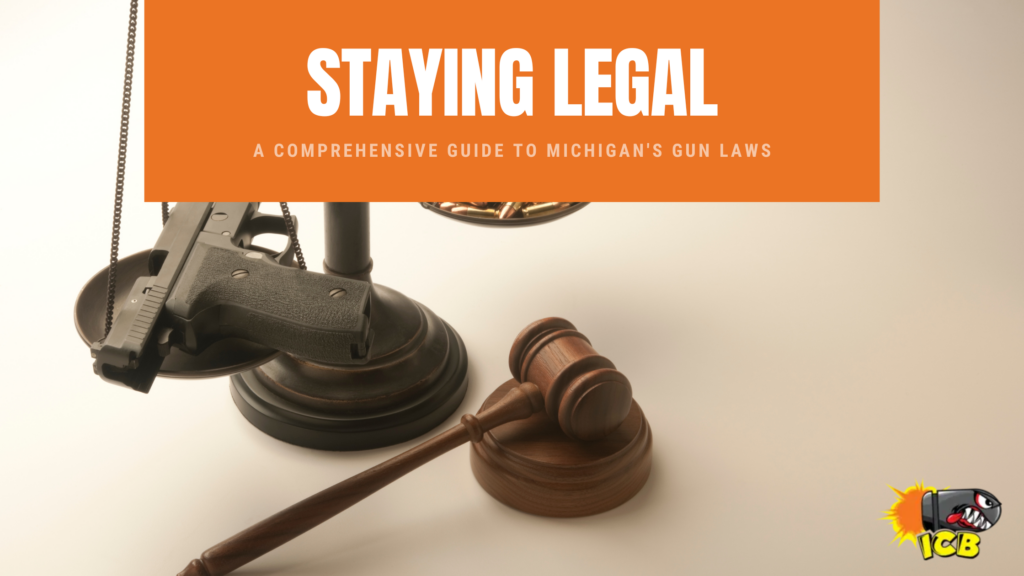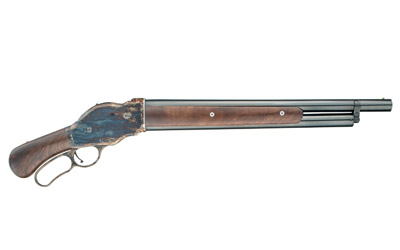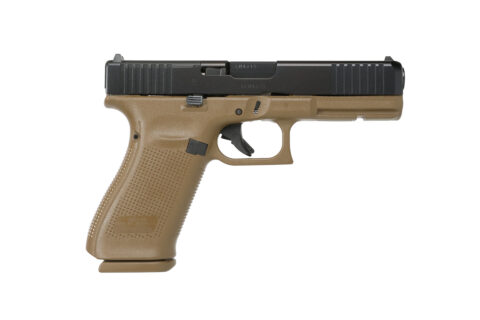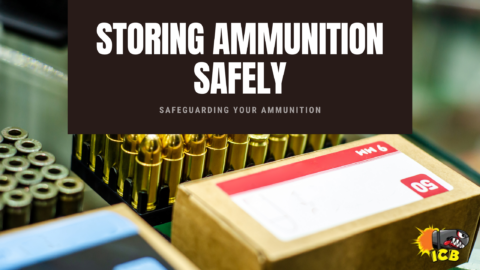Incidents, often involving mass shootings or acts of gun violence in Michigan, have propelled public and legislative dialogue toward stricter gun control measures. The legislative changes aim to address gaps in the existing laws and provide a framework for preventing gun violence, balancing the rights of responsible gun owners with the broader goal of safeguarding the community from the risks associated with firearms.
In light of these recent legislative adjustments, it’s essential to be well-informed about your rights and duties as a firearm owner in the state.
Firearm Purchase Requirements in Michigan
If you’re looking to comprehend every aspect of firearm ownership, from purchase to carrying them, and remain compliant with the law, we’ve got you covered.
Background Checks and Permitting Process
Recent legislative updates in Michigan now require universal background checks for all firearm purchases. This is a shift from previous laws that required checks mainly for pistol sales. Now, whether you’re buying a pistol, rifle, or any other type of firearm, a comprehensive background check is a mandatory step in the process.
What Does a Background Check Entail?
Buying a firearm in Michigan requires a background check to ensure you’re a responsible and eligible owner. This check looks at several factors to make that determination:
- Criminal History: National and state databases are scanned for any felony convictions that would prevent you from owning a gun. Federal law also disqualifies people with misdemeanor domestic violence convictions.
- Mental Health Records: The check searches mental health records for involuntary commitment or court-ordered mental incompetence. This helps keep firearms out of the hands of those who may pose a safety risk due to mental health concerns.
- Restraining Orders and Protective Orders: Background checks identify individuals with active restraining orders or protective orders, particularly those related to domestic violence, as prohibited from gun ownership.
- Immigration Status: The check verifies your legal status in the country. Being unlawfully present disqualifies you from firearm ownership.
These stringent requirements ensure that firearms do not fall into the hands of those with criminal backgrounds or those prohibited from owning guns.
Purchase Permits: Process and Validity
To purchase a firearm in Michigan, individuals must now obtain a purchase permit. This process involves going to a law enforcement agency, undergoing a background check, and attesting that you meet all the qualifications under Michigan law to own a firearm. These qualifications mirror those required for obtaining a Concealed Pistol License (CPL), ensuring that gun owners have been thoroughly vetted.
The purchase permit proves the individual’s eligibility to own a firearm and is a critical checkpoint in maintaining public safety. This step prevents the transfer of firearms to minors or individuals legally barred from gun ownership. It’s important to note that while minors can possess firearms in certain controlled circumstances (like farming, ranching, or supervised target practice), the purchase and ownership laws are strictly enforced to prevent unsupervised access.
Concealed Carry Laws in Michigan
Are you thinking about carrying a concealed pistol in Michigan? The state has specific laws to ensure everyone’s safety. The law determines who can get a permit and when you can carry concealed.
Obtaining a Concealed Pistol License
To carry a concealed pistol in Michigan lawfully, individuals are required to secure a Concealed Pistol License (CPL). This entails various steps, including:
- Finishing a state-approved firearms training program: Before carrying a concealed pistol in Michigan, you’ll need to pass a state-approved training course. This course isn’t just about shooting; it equips you with the knowledge and skills for responsible gun ownership.
- Undergoing a successful background check: A thorough background check is conducted to identify any criminal history or legal restrictions that might disqualify an applicant from holding a CPL. This includes checks against federal and state databases for any felony convictions, restraining orders, or other legal impediments to owning or carrying a firearm.
- Satisfying various eligibility requirements: Beyond the training and background check, applicants must satisfy additional criteria to be considered for a CPL. These requirements include being a U.S. citizen or a lawful resident of the United States. Furthermore, applicants must not be considered mentally incapacitated or have been involuntarily committed for mental health reasons.
These requirements ensure that only responsible and law-abiding citizens are granted the privilege to carry concealed firearms. Training emphasizes safe handling, storage, and usage of firearms, aiming to reduce accidents and enhance public safety.
Concealed Carry Reciprocity with Other States
Michigan recognizes the CPLs issued by many other states, and similarly, many states recognize Michigan’s CPL. This concept, known as concealed carry reciprocity, allows for the mutual recognition of concealed carry permits across state lines. However, gun owners are cautioned to familiarize themselves with the laws of any state they plan to visit, as regulations and restrictions can vary significantly.
Reciprocity is important for those who travel frequently with their firearms, as it determines where you can legally carry concealed weapons outside of Michigan. While some states have agreements with Michigan for reciprocal recognition of CPLs, others do not. Therefore, before traveling, CPL holders should conduct thorough research to ensure compliance with the laws of the destination state.
Open Carry Regulations in Michigan
Michigan’s laws permit the open carrying of firearms in many situations, reflecting the state’s commitment to upholding citizens’ rights under the Second Amendment. However, understanding where open carry is allowed and the proper way to interact with law enforcement when carrying openly is crucial for ensuring compliance with the law and promoting safety.
Where You Can and Cannot Open Carry
Michigan allows open carry in most public places, but there are important exceptions. Here’s a breakdown:
Open Carry: Parks, streets, and other outdoor areas are generally okay to open carry, as long as you can legally own a firearm.
Absolutely No Open Carry
There are specific locations where carrying a firearm openly is strictly forbidden, regardless of one’s legal right to possess firearms. These areas include:
- School
- Child care facilities
- Bars and restaurants that serve alcohol
- Places of worship
- Sports arenas
- Hospitals
- Private property with “No Guns” signs
Remember to check with local authorities or business owners if you’re unsure about open carry in a specific location. Even in permitted areas, open carry can be unsettling for others. Be responsible and considerate.
Interaction with Law Enforcement While Open Carrying
Exercising your right to open carry in Michigan might lead to interactions with law enforcement. Officers may inquire about the firearm for safety reasons, and being cooperative and respectful during these interactions can help to de-escalate any potential tension. To ensure a smooth encounter for everyone’s safety, here are some helpful tips:
- Stay Calm and Composed: Always keep your hands in clear view and remain calm. Sudden or unexpected movements can be misinterpreted as aggressive or threatening. A composed demeanor helps maintain a non-confrontational atmosphere.
- Be Upfront: Upon approach, proactively inform the officer that you are legally carrying a firearm. This upfront communication can set a foundation of transparency for the rest of the interaction.
- Comply with Requests: Law enforcement may request to see your identification or ask for your Concealed Pistol License (CPL), even if you are openly carrying, which is a standard procedure in verifying your legal right to carry the firearm. Providing the requested documents without hesitation demonstrates your compliance and respect for the legal process.
It’s also important for carriers to be knowledgeable about their rights in these situations, including the limitations of law enforcement’s authority regarding stop-and-question procedures.
Transporting Firearms in Michigan
Michigan takes firearm safety seriously, and that includes how you transport your guns. Whether you’re a seasoned gun owner or just starting, understanding the transportation laws is crucial.
Vehicle Transport Laws without a CPL
When transporting a firearm in Michigan without a Concealed Pistol License (CPL), certain safety measures must be strictly observed. To begin with, the firearm should be fully unloaded. Next, it must be placed in a container that locks and is not easily reached from the vehicle’s interior. The trunk is the most recommended location for this purpose.
In vehicles without a trunk, any locked container that is separate from the glove compartment or center console is acceptable. These precautions are designed to keep the firearm secure and out of reach during transport, clearly differentiating it from being carried for immediate access, which requires a CPL. Failure to comply with these transportation laws can result in serious legal consequences.
Air Travel and Transportation Across State Lines
Transporting firearms across state lines or by air requires adherence to federal laws as well as the laws of the state to which you are traveling. For air travel, the Transportation Security Administration (TSA) mandates that firearms be unloaded, packed in a hard-sided locked case, and declared at the airline check-in counter.
Once declared, the airline staff will provide specific instructions on how to proceed, which may vary slightly depending on the airline. Ammunition must also be securely packed in its original box or a hard case. These regulations ensure that firearms are safely transported in the cargo area of the plane, away from passengers.
Places Off-Limits for Firearms, Even with a CPL
Holding a concealed pistol license (CPL) in Michigan allows individuals significant freedom regarding where they can carry firearms. However, there are still specific locations designated as “pistol-free” zones where carrying firearms is prohibited. Understanding these restrictions is necessary for lawful carry and respecting the boundaries set for public safety and private property rights.
Understanding “Pistol-Free” Zones
“Pistol-free” zones refer to specific locations designated by Michigan legislation where the presence of firearms is strictly prohibited, regardless of whether a person holds a Concealed Pistol License (CPL). As previously pointed out above, such locations encompass but are not limited to educational institutions, child care centers, sports facilities, and establishments, generating a majority of their revenue from alcohol sales, religious venues, theaters, and medical facilities.
The rationale for establishing these zones as firearm-restricted is to ensure the safety and security of the community, particularly in environments that are regularly visited by children and large gatherings. Exceptions to these restrictions exist for certain individuals, such as law enforcement officers and individuals with specific permissions. Violating pistol-free zone laws can result in serious penalties, including fines and revocation of the CPL.
Navigating Restrictions in Public and Private Spaces
In addition to the legally defined pistol-free zones, CPL holders must also observe restrictions in other public and private spaces. Private property owners have the right to prohibit firearms on their premises, and this right is upheld by Michigan law. Signs are often posted at entrances to inform visitors of such restrictions. CPL holders are expected to respect these signs and refrain from carrying firearms into these locations.
Public spaces, too, can have specific restrictions based on local ordinances or the nature of the event taking place. For example, carrying firearms at public demonstrations or in government buildings might be prohibited. Staying informed about these restrictions is essential for responsible firearm carry.
Important Considerations for Michigan Gun Owners
Being a firearm owner in Michigan entails accepting a series of duties designed to safeguard not only the owner and their household but also the wider community. This includes complying with laws on secure firearm storage and grasping the legalities tied to employing a firearm in self-defense.
Recognizing and acting upon these responsibilities is vital for diligent firearm stewardship and for reducing the likelihood of accidental injuries or facing legal issues.
Safe Storage Laws and Child Access Prevention
Michigan’s legislation on firearm storage is crafted to enhance the safety of both the gun-owning community and the general public, with a focus on preventing minors from accessing firearms. These laws mandate that firearms must be stored, unloaded, and securely locked away, ensuring they are out of reach and inaccessible to children.
To meet these requirements, gun owners are encouraged to use safety devices such as gun safes, lock boxes, or trigger locks, which are effective tools in preventing unauthorized access.
The motivation behind these stringent storage laws is to significantly lower the incidents of accidental shootings. This tragic outcome is all too possible when children, out of curiosity or ignorance, manage to get hold of loaded guns.
Such incidents result in devastating harm to individuals and families and often lead to serious legal consequences for the firearm owner. By implementing safe storage practices, firearm owners shield the community from such unintended tragedies.
Legal Implications of Defensive Gun Use in Michigan
Michigan joins 25 other states in recognizing “stand your ground” for self-defense. This law empowers you to use deadly force to protect yourself or others from imminent harm without a duty to retreat first. It’s rooted in the Castle Doctrine, which historically granted similar protections within your home (your castle).
The Castle Doctrine reinforces the legal principle that individuals are not obliged to flee from their homes in the face of a criminal act. Essentially, if an intruder enters your home, the law recognizes your right to use lethal force in self-defense without attempting to retreat. The “stand your ground” law extends this principle to any location where the individual is lawfully present.
Criteria for Using Lethal Force in Michigan
The application of lethal force is permissible under specific circumstances aimed at preventing imminent:
- Death
- Great bodily harm
- Sexual assault
This means that lethal force is not justifiably used in response to any illegal act but is reserved for situations where there is a real and immediate threat of serious harm. Home invasions, carjackings, and kidnapping attempts are all presumed to be lethal threats. Unlike states without “stand your ground” laws, Michigan does not require individuals to retreat from threats if they can safely do so, even outside their homes.
While Michigan’s “stand your ground” law offers protection, there are crucial exceptions. You cannot claim self-defense if you’re involved in criminal activity at the moment the threat arises. This is a common-sense rule that ensures the law is used for legitimate defense.
For a “stand your ground” defense to hold in Michigan, the defendant must demonstrate the following:
- The Burden of Proof: You’ll need to convince a judge or jury that your belief in danger was honest and reasonable based on the circumstances.
- “Reasonable Belief” Explained: This doesn’t mean any perceived threat justifies deadly force. The situation must warrant the level of force used.
Seeking legal advice is paramount, particularly if you’re involved in a situation where you’ve used force in self-defense. A qualified attorney possesses the expertise to guide you through the legal process, advocating on your behalf to ensure that your actions are properly contextualized within the framework of the law.
Their involvement is instrumental in safeguarding your rights, providing counsel on potential legal outcomes, and strategizing the best course of action. They offer clarity and support to assert your lawful defense effectively.
Remember, you cannot use the stand-your-ground law if you are committing a crime. Therefore, if you have obtained a gun illegally and you stand your ground, you may be unsuccessful in your defense and end up being charged for having an illegal firearm.





